[Editorial] Interview with Nocebo and Vivarium Director Lorcan Finnegan
Having been blown away by Vivarium when Mayhem Film Festival screened it in 2019, I just had to find my way to talk to director Lorcan Finnegan about his new film, Nocebo (2022). It wasn’t easy, with time zones and then technology working against us, but it happened; and I must say Nocebo is a film that really deserves the effort. A mysterious and strangely gripping film, pristinely made and pointed in its message, Nocebo is about a fashion designer who suffers a malady no-one seems to be able to understand until a young Filipino carer arrives on her doorstep.
Each of Lorcan’s films to date have been written by the same collaborator, Garret Shanley. I opened my interview by asking Lorcan to tell me about that partnership. “We met in 2007,” Lorcan told me, “at a series of seminars known as the Catalyst Project, which was set up by Screen Ireland for directors, writers, producers to pitch on a low budget feature, basically. They had people with experience on low budget features come over to talk at the event, and there was a week of seminars; and then you could apply. So me and Garret just ended up sitting beside each other and got talking, got on very well and came up with an idea to pitch. We didn’t get it, because we came up with a really expensive sci-fi that couldn’t be made for a super low budget.”
I asked whether this was an idea that they have got to market since then. “No, we put it to the side, then,” Lorcan replied. “There are probably parts of it in other things that we made, though. We ended up pitching other short film ideas and trying to get money to make them and got rejected a bunch of times, but eventually, there was one. Garret had written a short story on his blog called Foxes, and I read it and thought it could make a really good short film, so he drafted it as a screenplay, we developed it back and forth, we pitched it and made it in 2010. Then came the next round of the Catalyst Project, a few years later, and we decided to go back in and try again, but with a project that might actually get picked. We pitched Without Name, and it got selected, so that was how we made our first feature film.
“Our process is just talking a lot on the phone, sharing interesting stuff, watching films and articles, reading similar books; and then generally, something will interest us enough to turn it into a story that could be a film. That’s how it’s been going for the past few years.”
Nocebo is a blend of horror with social commentary. I asked Lorcan why he felt those two fit together so well, and which element came first in developing this particular story. “For us,” Lorcan said, “we grew up watching films that do that. To me, the more interesting genre films always commented on society at that time. So they’re culturally relevant because they see the world through a genre lens in order to be able to discuss socio-political ideas or problems. People discuss them in a different way, because they’re still entertained by watching the film, but afterwards, something might linger, or they might be interested in having a debate or conversation. With this film, we started with an interest in nocebos and placebos, and how they are connected to shamanism and pagan cultures. Ireland was pagan before Christianity and we had these powerful women who were able to heal, known as ‘wise women’. But with the arrival of Christianity and later British colonisation, that was all pushed aside and made redundant; especially now, in a capitalist, consumerist society, anything that can be seen as a placebo is considered worthless, even though it can’t be marketed or patented. All these concepts took us along tangents, and we ended up looking at research into the Philippines, because we had wondered where in the world might be affected by neo-colonialism that still has a tradition of folk healing.
“The island of Cebu still has a strong tradition of folk healing, and was colonised by the Spanish, and they had these women called Babaylan, and they were very powerful healers, but when the Spanish arrived, they were demonised and were actually exterminated, pushed out into the forests (and then they were told the forests were haunted because witches lived there). So that was interesting to us, and we got some research development funding and went over to Cebu to find out more. We then also went to the island of Siquijor, which is called the ‘island of the witches'; people are actually quite afraid to go there, but they have faith healing festivals as well once a year, where people come to discuss all these topics. We met witch doctors, practitioners of Kulam, tribal chiefs of Ati and Badjaos tribes, and from what they told us, we could see this weird parallel with Irish folklore, which was interesting. Then we also visited garment factories in Cebu city, and you can really see the divide between rich and poor there, in very stark relief. So we went away and worked on a story to pitch, then went to Macau in China, pitched it to a co-production market there, to try to find Filipino co-producers. We met Bradley Liew and Bianca Balbuena and Patti Lapus from Epic there (they’re based in Manilla) and they were pitching a project there too. We all got talking and we got on well, so they came on board as our co-producers and got some financing from the Film Development Council in the Philippines, we had Screen Ireland development, and so that’s how the project came together.”
Lorcan then briefly told me one more trigger for the story’s inspiration: “There was an incident in 2015 in Manilla, the Kentex factory fire, where the workers were trapped inside due to safety regulations being ignored. Seventy-two people died, mostly women.”
As well as the film’s plot, I was also curious to know if there was a story behind its dedication to “Larry, Umberto and Liam”. “Larry was my Dad,” Lorcan explained, “and he died just while we were in prep on the film, from a heart attack. We were shooting the film and my wife Brunella Cocchiglia, a producer on the film, also lost her Dad. And then about four weeks later, my Mum’s partner, Liam, also passed away. These were all within a short period, while we were making the film, so we decided to dedicate the film to them.”
Our interview time was about to run out, but Lorcan was able to rapidly tell me about the upcoming projects. “There are two projects,” he said. “One is called Goliath, which is a dystopian fable set in the near future, about creating monsters to start wars and steal natural resources; I’m working on that with Garret. And I’m working on kind of a single-location thriller called The Surfer, set in Australia, with another writer called Thomas Martin.”
Interesting to hear about a new collaborator. “We’ve collaborated on something else,” Lorcan explained, “but it’s been taking a long time. We’ve known each other for years as well. Me and Garret and Brunella are the original band, but I do some solo stuff with some other collaborators too.”
RLJE Films will release NOCEBO in theaters on Nov. 4, 2022 and on Demand and Digital on Nov. 22, 2022. The film will stream on Shudder at a later date.


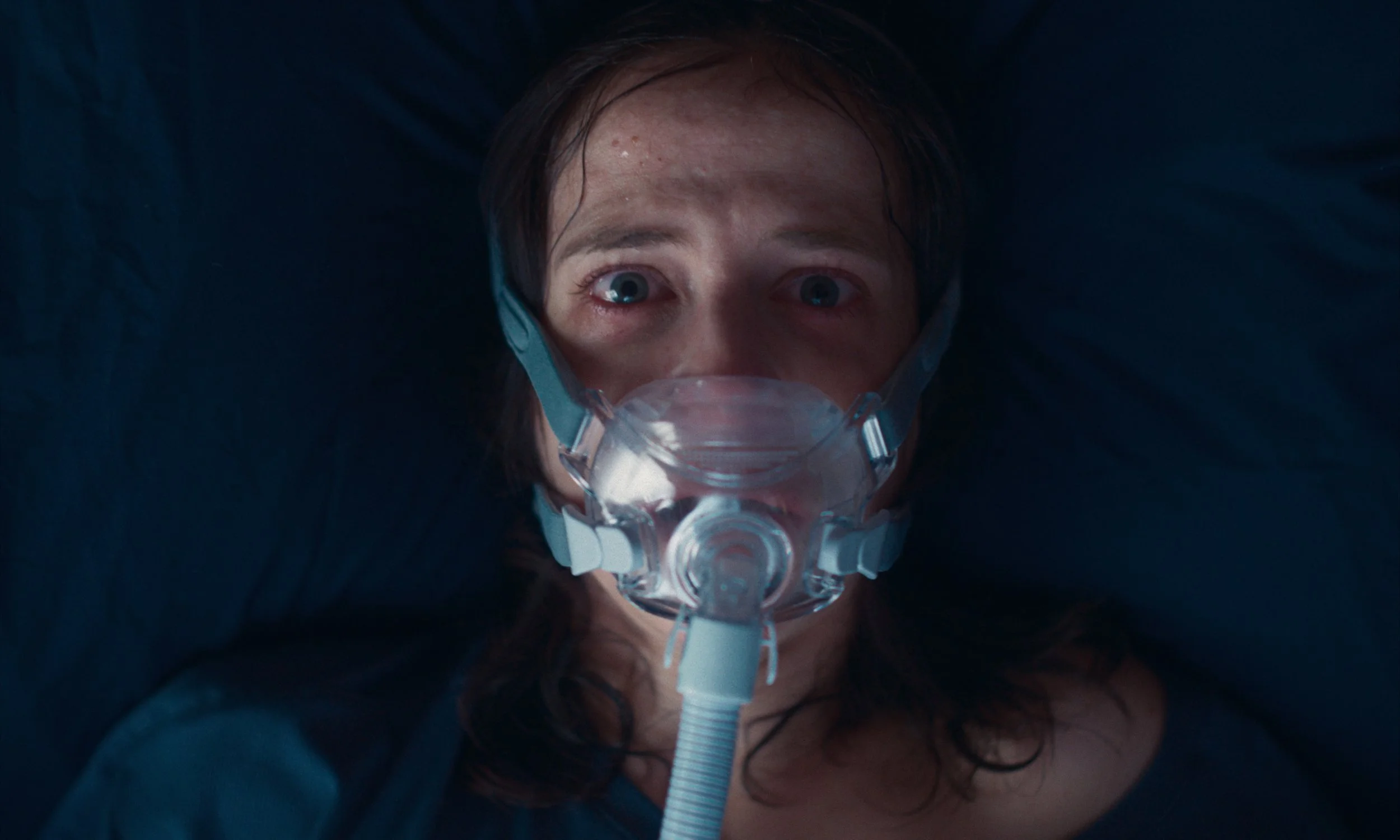
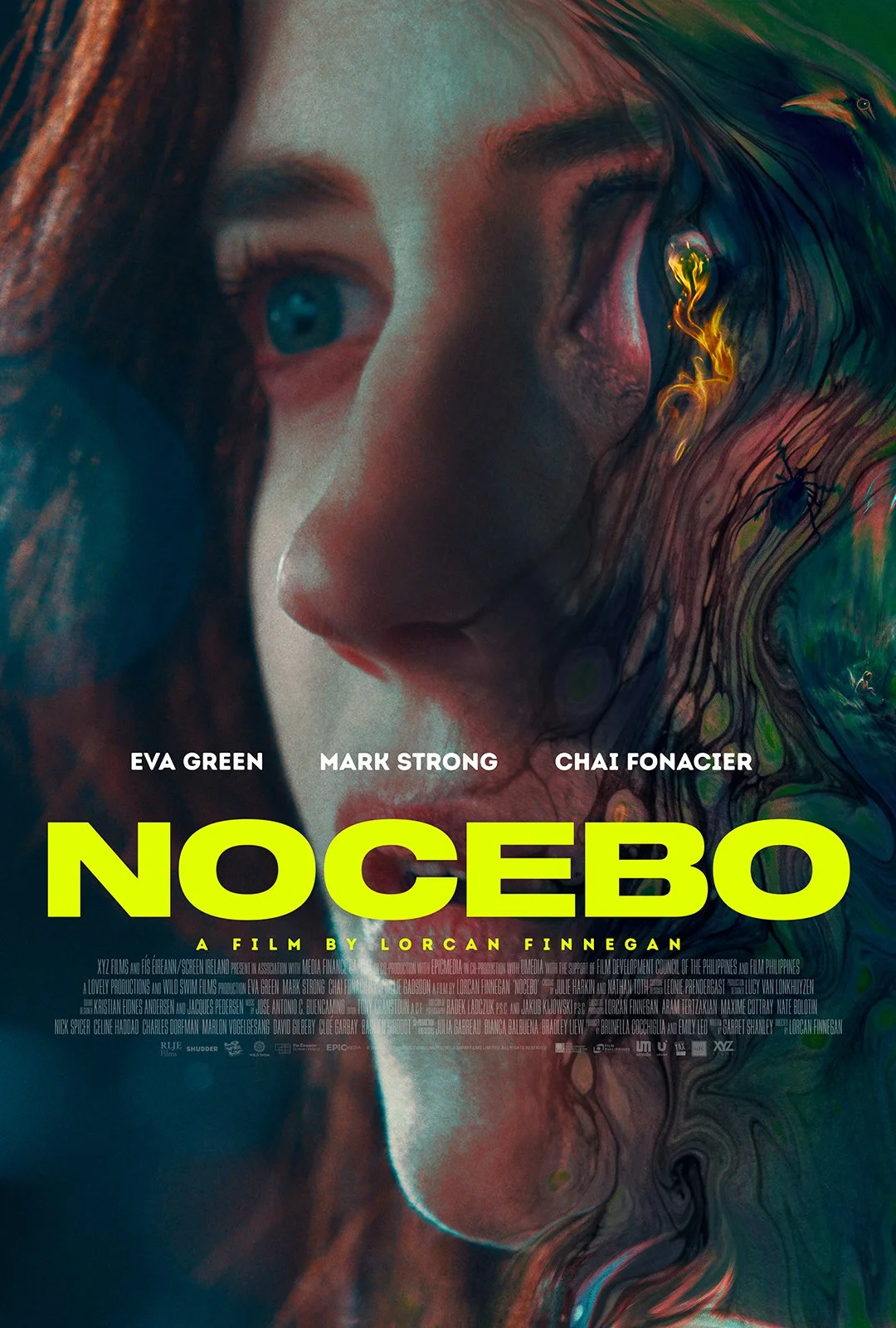
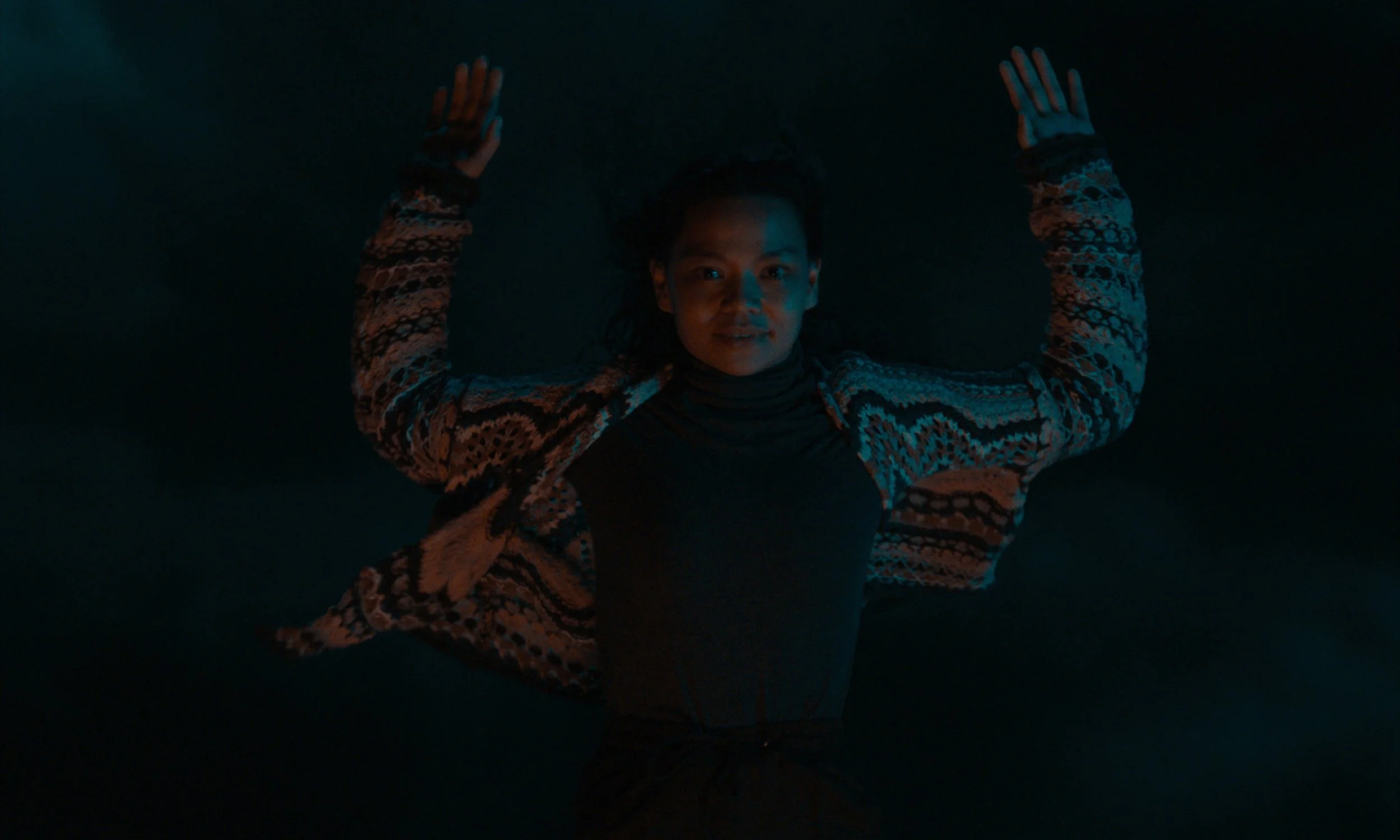
![[Editorial] Soho Horror Film Festival: Interview with Aimee Kuge on Cannibal Mukbang](https://images.squarespace-cdn.com/content/v1/5fe76a518d20536a3fbd7246/1701808004722-9M8SZ2UXY52QBQBR4NTI/img20230818_15150780.JPG)
![[Editorial] 9 Horror Nintendo Switch Games To Play](https://images.squarespace-cdn.com/content/v1/5fe76a518d20536a3fbd7246/1697214470057-3XZXX8N4LYIMDFWS6Z3P/Screenshot+2023-10-13+at+17.20.13.png)
![[Mother of Fears] Mothering in Silence in A Quiet Place (2018)](https://images.squarespace-cdn.com/content/v1/5fe76a518d20536a3fbd7246/1696445921315-HZJ2DZYQIH6VVWXBO2YL/Screenshot+2023-10-04+at+19.52.29.png)
![[Event Review] Highlights from Mayhem Film Festival 2023](https://images.squarespace-cdn.com/content/v1/5fe76a518d20536a3fbd7246/1697624582491-MPT2VB9RRGU6OG7L6UKL/Mayhem+2023.jpg)
![[Editorial] Mayhem Festival: Interview with Thomas Sainsbury on Loop Track (2023)](https://images.squarespace-cdn.com/content/v1/5fe76a518d20536a3fbd7246/1697186472899-WC4RR0TW7L7LMFEBGPA2/Tom+Sainsbury.jpg)
![[Editorial] Keeping Odd Hours: A Retrospective on Near Dark (1987)](https://images.squarespace-cdn.com/content/v1/5fe76a518d20536a3fbd7246/1696445070868-HU9YIL3QPBCL1GW47R3Z/Screenshot+2023-10-04+at+19.36.53.png)
![[Editorial] 5 Female Focused Horror Book Recommendations](https://images.squarespace-cdn.com/content/v1/5fe76a518d20536a3fbd7246/1696441981361-52EQCTJ7AT2QF1927GM7/919xtm6d3fL._AC_UF894%2C1000_QL80_.jpg)
![[Editorial] What to Watch at This Year's Cine-Excess International Film Festival 2023](https://images.squarespace-cdn.com/content/v1/5fe76a518d20536a3fbd7246/1697213510960-REV43FEOZITBD2W8ZPEE/Screenshot+2023-10-13+at+17.01.15.png)
![[Editorial] Cherish Your Life: Comfort in the SAW Franchise Throughout and Beyond the COVID-19 Pandemic](https://images.squarespace-cdn.com/content/v1/5fe76a518d20536a3fbd7246/1695487675334-MYPCPYYZQZDCT548N8DI/Sc6XRxgSqnMEq54CwqjBD5.jpg)





















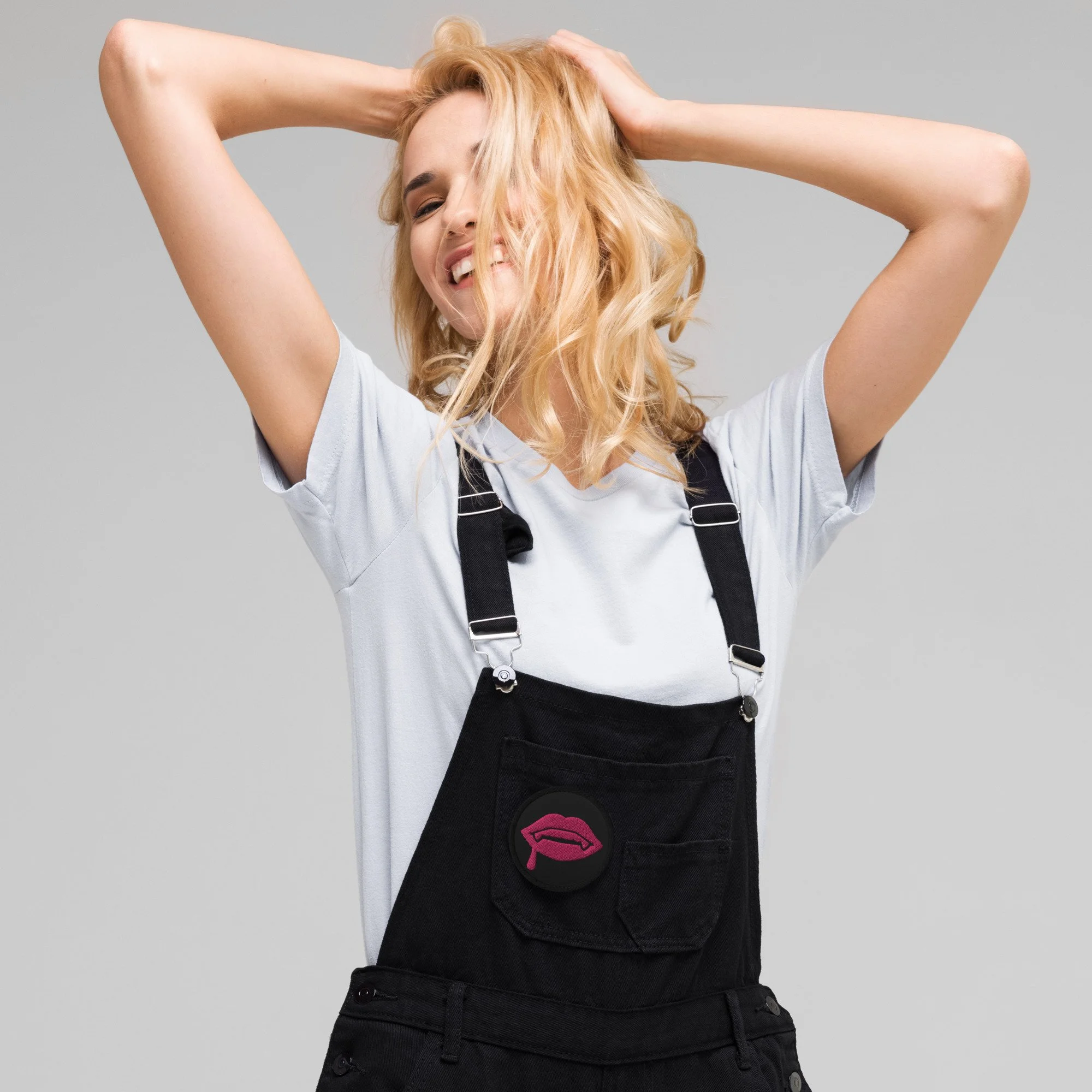

![[Editorial] 10 Films & Events to Catch at Soho Horror Film Fest 2023](https://images.squarespace-cdn.com/content/v1/5fe76a518d20536a3fbd7246/1700819417135-299R7L4P0B676AD3RO1X/Screenshot+2023-11-24+at+09.41.52.png)
![[Editorial] 9 Best Slashers Released Within 10 Years of Scream (1996)](https://images.squarespace-cdn.com/content/v1/5fe76a518d20536a3fbd7246/1695478839037-LOFHGVM3H6BMSZW7G83M/Screenshot+2023-09-23+at+15.15.11.png)
![[Mother of Fears] Mother Vs. Monster in Silent Hill (2006)](https://images.squarespace-cdn.com/content/v1/5fe76a518d20536a3fbd7246/1695485781119-H6GNP0G3J2TLPAOIABV7/Screenshot+2023-09-23+at+17.11.56.png)
![[Editorial] 9 Terrifying Cerebral Visions in Horror Movies](https://images.squarespace-cdn.com/content/v1/5fe76a518d20536a3fbd7246/1693509801235-X23OL50T1DVGECH0ZJK2/MV5BMjQ0MTg2MjQ4MV5BMl5BanBnXkFtZTgwMTU3NDgxMTI%40._V1_.jpg)
![[Mother of Fears] I Don’t Wanna Be Buried in a Pet Sematary (1989) and (2019)](https://images.squarespace-cdn.com/content/v1/5fe76a518d20536a3fbd7246/1691328766069-QFNAVJOMFZVZ5CLU1RWM/Screenshot+2023-08-06+at+14.23.13.png)
![[Mother of Fears] How I Love to Love Nadine in The Stand (2020)](https://images.squarespace-cdn.com/content/v1/5fe76a518d20536a3fbd7246/1690213172707-TKM9MZXK02EVCIX30M1V/Screenshot+2023-07-24+at+16.29.11.png)
![[Editorial] 11 Best Werewolf Transformations in Horror Films](https://images.squarespace-cdn.com/content/v1/5fe76a518d20536a3fbd7246/1689240234098-HUPQC6L57AAHFJNT8FTE/Screenshot+2023-07-13+at+10.09.13.png)
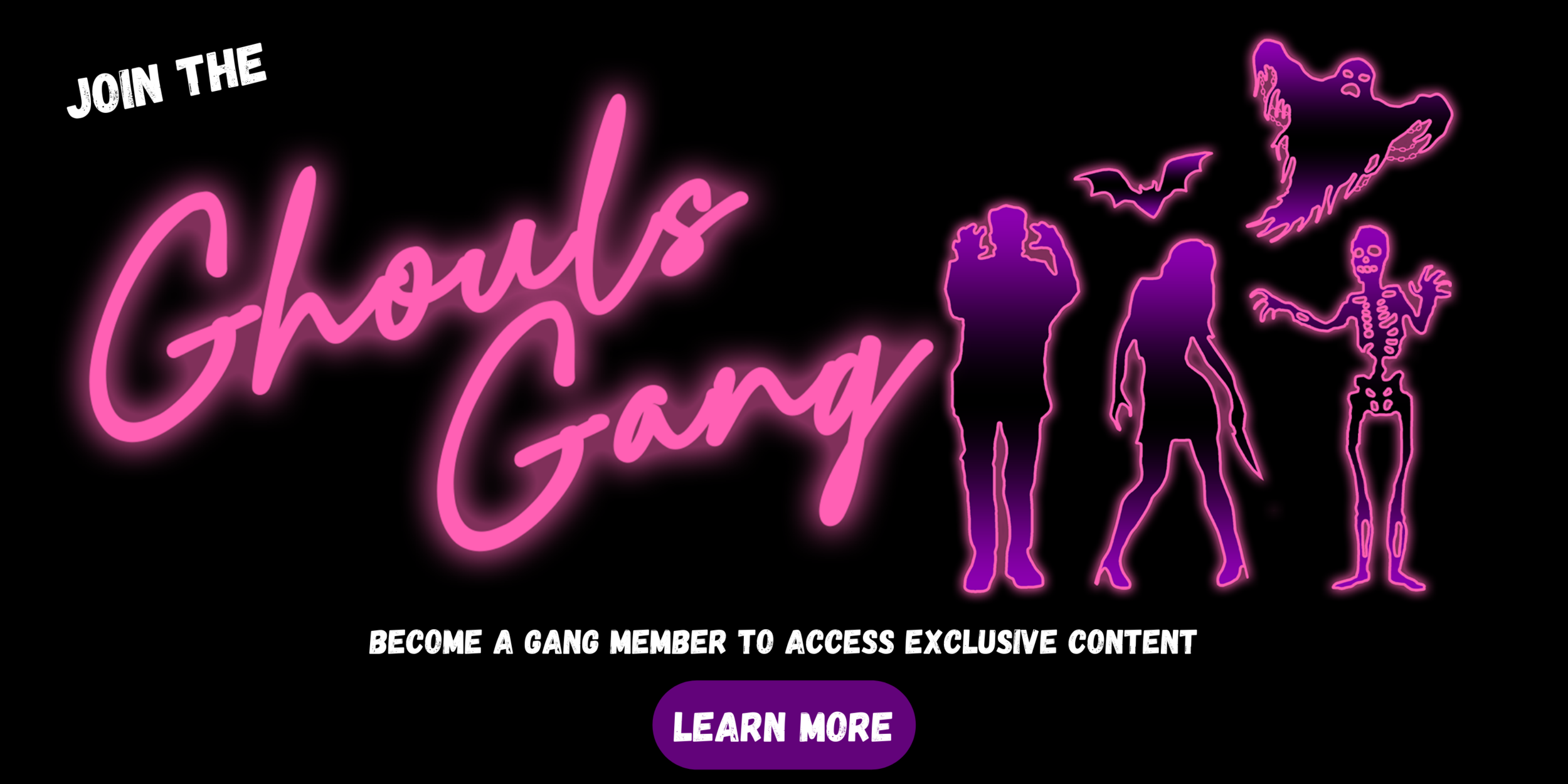
Now it’s time for Soho’s main 2023 event, which is presented over two weekends: a live film festival at the Whirled Cinema in Brixton, London, and an online festival a week later. Both have very rich and varied programmes (with no overlap this year), with something for every horror fan.